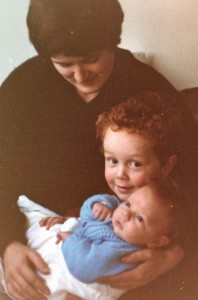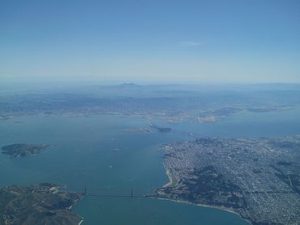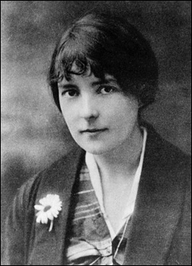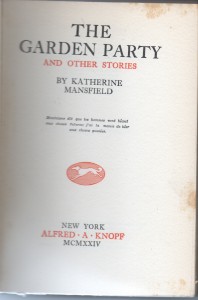Archive for March, 2017
Immigrant arrival
According to archived weather records, the afternoon temperature at San Francisco Airport on Saturday May 20, 1967 hovered around seventy degrees. Fog had rolled in the previous night, but the mid-afternoon sky was clear, with visibility ten miles. As the British Airways plane dropped lower and lower over the waters of the bay, the surrounding hills became visible. Something about the quality of the light triggered a thought in my mind: this is the landscape of home.
It wasn’t the place where I grew up. Tauranga, New Zealand, is 6,500 miles southwest across the Pacific from California. But Tauranga’s distance from the equator, latitude 38 ? S, is the same as San Francisco’s to the north. The view from the air of San Francisco Bay and surrounding hills has similarities with Tauranga Harbour. Tauranga’s climate is subtropical and humid; it’s a rare day with no cloud in the sky. Even in the San Francisco Bay Area’s Mediterranean climate, with its clear summer skies, the ever-present offshore fogbank spreads a blue mistiness over the hills.
Part of the triggered thought was relief at finally coming back to terra firma. It had been a long flight, twelve hours over the pole from London. The journey had been made as comfortable as possible. The Silicon Valley company hiring my husband Tony had paid for first class tickets. The airline put us right up front, where there was plenty of legroom, and wall space to hook up a crib for our 18-month-old baby, who slept most of the way, sitting up occasionally to exclaim, “Airp’ane! Airp’ane!” The food was excellent, according to Tony. Our four-year-old son and I didn’t want to know. The two of us huddled together, miserable with airsickness.
Sight of the San Francisco Bay also signified something deeper: a recognition that this journey was the start of a new life. We were no longer in England, where the class system had us labeled as “colonials” and therefore outsiders. We were not heading back to our birth country, where the old baggage of family relationships and kiwi social assumptions would reassert their weight. We were free to find our own place in the rapidly growing, multi-cultural landscape of the exciting new high tech industry.
When we moved to England, we were unclear about how long we planned to stay. We stored boxes of belongings in New Zealand, as if we planned to return, and our mindset while we lived in England was that of visitor rather than permanent resident.
This move was different. We were immigrants, Resident Aliens in the terminology of our green cards. I knew there would be culture shock. I had experienced this phenomenon, unexpectedly, our first months in England. I had to drop all the slang I had grown up with, and was unsure how to correctly use English colloquial expressions. (Did to “go up to Oxford” mean to take the train from London or to attend the university? If the former, did one “go up” to other universities too?) This time I knew to expect that attitudes, ways of talking, and subtle social cues would be unfamiliar. Like caterpillars metamorphosing into butterflies, we would slowly take on the coloration of our new country.
When domestic and literary lives collide
Among the battered manuscript boxes in my old black filing cabinet, you won’t find the draft of my first novel. It’s gone, the victim of a long-standing conflict for women between the dream of a writing life and the urge to domesticity.
Katherine Mansfield was my heroine and role model. Born in New Zealand in 1888, she too had embarked for England as a young woman determined to make her name as a writer. Through privation and illness she continued to write and publish story collections that made her famous. I could do that too, I told myself.
But there was a variation to our respective histories I had not counted on. In New Zealand before we left, I had given birth to a stillborn daughter. Looking back, I understand that depression fueled by guilt and buried grief over this loss exacerbated the homesickness and culture shock I experienced that first year in England. My unsuccessful search for a writing job did not help. In traditional wifely fashion, I had held off until Tony found work, in a company based west of London, then scrambled, in an unforgivingly tight rental market, to find us somewhere to live nearby. By the time we were settled, a lengthy daily commute into London seemed overwhelming.
I also ran into a catch-22: even though I had been a member in good standing of the New Zealand journalists union, no paper or magazine in London would hire me unless I was a member of the British journalists union, and it was not possible to join that union without first having a job on a paper. When the local newspaper in Windsor turned me down for a posted job because I refused to promise not to get pregnant and ‘waste their time,’ I decided the best thing to do was to start work on my novel and to have another child. I believed, naively, that I could handle taking care of a child and having a writing career. In retrospect, any kind of job would have made better economic sense. We were desperately poor, but the dream of making my way as a writer still held.
I don’t remember much of the plot of that first novel. Two main characters were New Zealand immigrants to England, like ourselves. There was also another couple, and some symmetry of cross-coupling, probably influenced by the Iris Murdoch novels I was reading. I remember feeling uneasy that the plot line was uncovering a sense of dissatisfaction and disillusionment in my own life and that I didn’t know how to resolve the story.
 By the time we left England five years later, my world revolved around our two small sons. I found it harder and harder to find time to work on my novel. I pushed aside the dissatisfactions with my own life that the novel echoed. In California things would be different, I told myself. I would devote my life to being a good mother. One bleak winter afternoon as we were packing up to leave the tiny house we had bought in Egham, Surrey, I came to a decision. I was alone, Tony at work, our older son playing at a neighbor’s house, the baby asleep upstairs. Outside under a lowering sky, the baby’s nappies, frozen into boards, hung motionless on the clothesline. Inside, a small coal fire burned in the grate. I sat on the floor in front of the fireplace and fed the unfinished draft of my novel page by page into the flames.
By the time we left England five years later, my world revolved around our two small sons. I found it harder and harder to find time to work on my novel. I pushed aside the dissatisfactions with my own life that the novel echoed. In California things would be different, I told myself. I would devote my life to being a good mother. One bleak winter afternoon as we were packing up to leave the tiny house we had bought in Egham, Surrey, I came to a decision. I was alone, Tony at work, our older son playing at a neighbor’s house, the baby asleep upstairs. Outside under a lowering sky, the baby’s nappies, frozen into boards, hung motionless on the clothesline. Inside, a small coal fire burned in the grate. I sat on the floor in front of the fireplace and fed the unfinished draft of my novel page by page into the flames.



